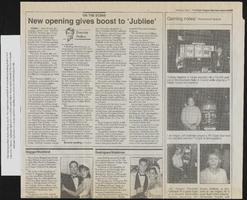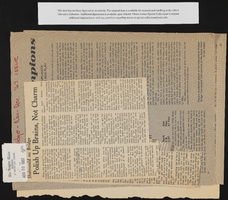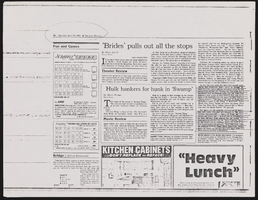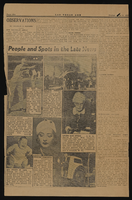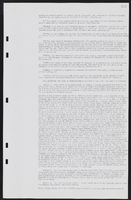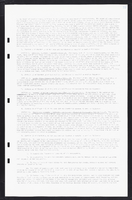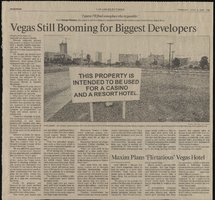Search the Special Collections and Archives Portal
Search Results
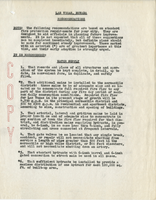
Report of Las Vegas fire protection recommendations from the Board of Fire Underwriters of the Pacific, July 1949
Date
1949-07
Archival Collection
Description
Fire protection recommendations for the city of Las Vegas including an April 13, 1949 fire flow test report provided by the Board of Fire Underwriters of the Pacific for Las Vegas.
Text

Meeting minutes for Consolidated Student Senate, University of Nevada, Las Vegas, September 9, 1975
Date
1975-09-09
Archival Collection
Description
Agenda and meeting minutes for the University of Nevada, Las Vegas Student Senate. CSUN Session 4 Meeting Minutes and Agendas.
Text
Pagination
Refine my results
Content Type
Creator or Contributor
Subject
Archival Collection
Digital Project
Resource Type
Year
Material Type
Place
Language
Records Classification

